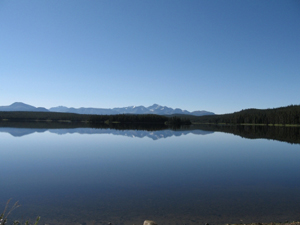
The recent decision by the federal government to kill the proposed Prosperity mine project calls into question (once again) the integrity of the B.C. environmental assessment process.
How can it be that one project proceeds through two separate assessment processes with such radically disparate outcomes?
It's like going to two different doctors and having one say, "You're in good health, go home," and the other say, "You've got terminal cancer and six weeks to live!" Only one of these diagnoses can be right.
Environmental assessment is supposed to an objective, neutrally administered, fact-finding process, and results should be more or less consistent regardless of whose assessment process is being applied.
It's not often we have a situation where one project is subjected to two different environmental reviews, but now that it has happened with Prosperity, we have a perfect opportunity to find out what went wrong and fix it.
Nature-threatening list a mile long
When the federal panel issued its report in July it found an array of very serious, irreversible impacts that were not fixable. In addition to the complete loss of Fish Lake, the mine would result in significant adverse impacts to Tsilhqot'in land use, culture and heritage, aboriginal rights, traplines, navigation, wildlife and significant cumulative impacts to grizzly bear.
Further, the mine would likely require water treatment well beyond mine closure and perpetual maintenance of the fish habitat compensation works, meaning a substantial and ongoing commitment of government resources for monitoring, treatment and maintenance in perpetuity, since the company was planning to walk from the property once mine reclamation was complete.
It is no wonder that Environment Minister Prentice called the federal report the most scathing assessment report he had ever read when he rejected the mine on Nov. 2.
B.C.'s assessment found only one significant impact -- the loss of Fish Lake -- but then wrote this off on the basis of a profoundly inadequate fish restocking program in other lakes, plus the claim that the economic benefits (something the EAO never evaluated) of the project offset the impact.
The company's response to the federal decision was disingenuous, to say the least. CEO Russell Hallbauer in announcing the company plans to submit a new proposal once it figures out why Prentice rejected it, stated:
"Before taking that step, we must learn the reasons why the first proposal was rejected. Understanding the reasons will enable us to address their concerns and work to reduce or eliminate them."
Didn't Hallbauer read the panel's report? The minister had no other reasons (and needed none) except those the panel so explicitly laid out.
And some of those reasons -- the ones dealing with the write-off of Fish Lake -- had been known to the company since it first engaged the federal government with its proposal in the early 1990s. Taseko had been repeatedly told by the fisheries department that a project that involved the loss of Fish Lake was not open for discussion.
Taseko had been advised over the past decade to examine alternatives. The company claims it did look at different ways of mining the deposit, but it always ended up with the same old proposal.
As Taseko stated to the federal panel at the technical hearings in Williams Lake in April, "Taseko has left no stone unturned in trying to find a way to preserve Fish Lake and develop the project... It is not possible to preserve Fish Lake as a viable and functioning ecosystem while at the same time maximizing the full potential of the defined resource. From a mine planning perspective, in order to meet the objective of maximizing the full potential of the mineral resource at Prosperity, mine planners and decisions makers need to contemplate and prepare for the development of a pit that infringes on Fish Lake."
An unfixable proposal
It's amusing that Taseko, so adamant until this point that there was no way to mine and save Fish Lake, has suddenly become attentive to prospects of an alternative when the government rejects the project.
It will be a futile attempt. The problems identified by the federal panel are so major and overwhelmingly unfixable that no project at any scale will work in that setting.
In the meantime, the EAO now has a new executive director. Cheryl Wenezenki-Yolland, having just parachuted in from her stint as B.C.'s comptroller general, couldn't have arrived at a better time. Now is a perfect opportunity to fix some of the endemic dysfunction within the EAO. For starters, she would be well advised to commission an independent audit of how her officials conducted the Prosperity EA process and ended up approving what would have been an environmental disaster. ![]()
Read more: Environment















Tyee Commenting Guidelines
Comments that violate guidelines risk being deleted, and violations may result in a temporary or permanent user ban. Maintain the spirit of good conversation to stay in the discussion.
*Please note The Tyee is not a forum for spreading misinformation about COVID-19, denying its existence or minimizing its risk to public health.
Do:
Do not: